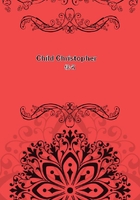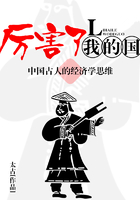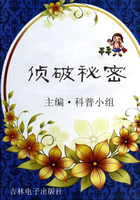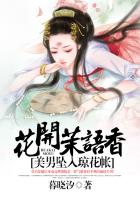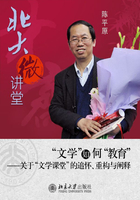To appreciate Mill's position,it is necessary briefly to notice the prejudices which he had to encounter and the sympathies upon which he could reckon.Political economy had been exultant in the days of James Mill.He and his allies were entering the promised land.They took the science to be in the same stage as astronomy just after the publication of Newton's Principia.The main truths were established,though prejudice and sentiment still blinded the outside world to the clearest demonstration.A narrow and unpopular circle naturally retorts dislike by fanaticism.The Utilitarians were,and knew themselves to be,bitterly hated;though they took the hatred to be an unconscious tribute to their real authority --the homage of the stupid to irresistible logic.Richard Jones in the preface to his Treatise on Rent (1831),says,that the Ricardians had not only put forward 'startling and in some instances,unhappily,disgusting and most mischievous paradoxes,'but that they had thus alienated mankind and caused a distrust of political economy.When J.S.Mill's treatise appeared,this position was modified.The 'philosophical Radicals'had declined as a party;but the assault upon protectionism in which they had acted as forlorn hope had conquered a much wider circle.Their ideas had spread,whether by stress of argument or congeniality to the aspirations of the newly enfranchised classes.The conspicuous instance,of course,is the free trade movement.The triumph over the corn-laws seemed to establish the truth of the economic theory.Doctrines preached by professors and theorists had been accepted and applied by politicians on a grand scale.The result,as Cairnes,one of Mill's chief followers observes,was not altogether an advantage to the science.(5)The popular mind identified political economy with free trade,and thought that all difficulties could be solved by a free use of the sacred words 'supply and demand.'The strict economic doctrine had been,as Cairnes held,adulterated in order to suit the tastes of the exoteric audience.This remark suggests the problem,not strictly soluble,as to the causes of the free trade victory.Did it mark a triumph of logic,or was it due to the simple fact that the class which wanted cheap bread was politically stronger than the class which wanted dear bread?Cobden admitted fully that the free trade propaganda was a 'middle-class agitation.'(6)The genuine zealots were the manufacturers and merchants;and it was so far a trial of strength between the leaders of industry and the owners of the soil --a class struggle not between rich and poor,but between the 'plutocracy'and the 'aristocracy.'Cobden was proud of the order to which he belonged,and held that the aristocracy represented blind prejudice.Some verses often quoted by popular orators declared that the landowners'motto was 'down with everything'(including health,wealth,and religion)'and up with rent';and Bright in 1842told the workmen that 'the greatest enemy of the remorseless aristocracy of Britain must almost of necessity be their firmest friend.'(7)As usual in such cases,a legend arose which regarded the victory as due exclusively to the force of truth.Beyond all doubt,argument played its part as well as class prejudice.Cobden,though little interested in abstract theories,was an admirable,cogent,and clear reasoner.He was fully competent to assimilate so much political economy as was required for his purpose,and used it most effectively.Later history,however,has shown that in such matters pure reason cannot by itself win the battle against interested prejudice.For the time,the victory,taken by the winners to be a victory of reason,reflected glory upon the economists who from the days of Adam Smith had been labouring to indoctrinate the public mind.The triumph of the agitation was thus due to sheer force of argument and the Consequent recognition of the principles of justice to the poor and goodwill to all mankind.Science and philanthropy had joined hands.The enthusiasm which soon afterwards greeted the Exhibition of 1851showed the widespread conviction that the millennium of peace and liberty,of which the Wealth of Nations marked the dawn,was at last appearing in full daylight.And Mill was regarded as the authorised representative in philosophy of the principles now at last fully applied to practice.
Mill himself did not fully shire the optimistic exultation which helped to strengthen his authority;nor was it accepted by the class most immediately affected.The 'big loaf'was a cry,it might be thought,which should appeal most strongly to the hungriest.Yet the Chartists,whose agitation was beginning when the Anti-Corn Law League was founded,were lukewarm or positively hostile.They interrupted free trade meetings and looked askance at the agitation.(8)The Chartists thought that the middle class,having got into power by their help,were throwing them over and monopolising all the fruits of victory.Their ablest leaders admitted,indeed,that free trade would be desirable,but desirable only on condition that the charter should first be conceded and democracy invested with political power to guard against misappropriation of the economic advantages.The employers,as they suspected,wanted cheap bread,because,as Lord Shaftesbury once put it,'cheap bread means low wages.'(9)The free-traders,indeed,had constantly to meet this argument.
Cobden constantly and earnestly denied the imputation.He desired free trade,as he asserted with unmistakable sincerity,above all in justice to workmen,and ridiculed the notion that wages sank with the price of corn.(10)Cobden,however,appeals rather to obvious facts than to economic theorems;and Chartists who read Ricardo and M'Culloch might find some excuse for their opinion.

